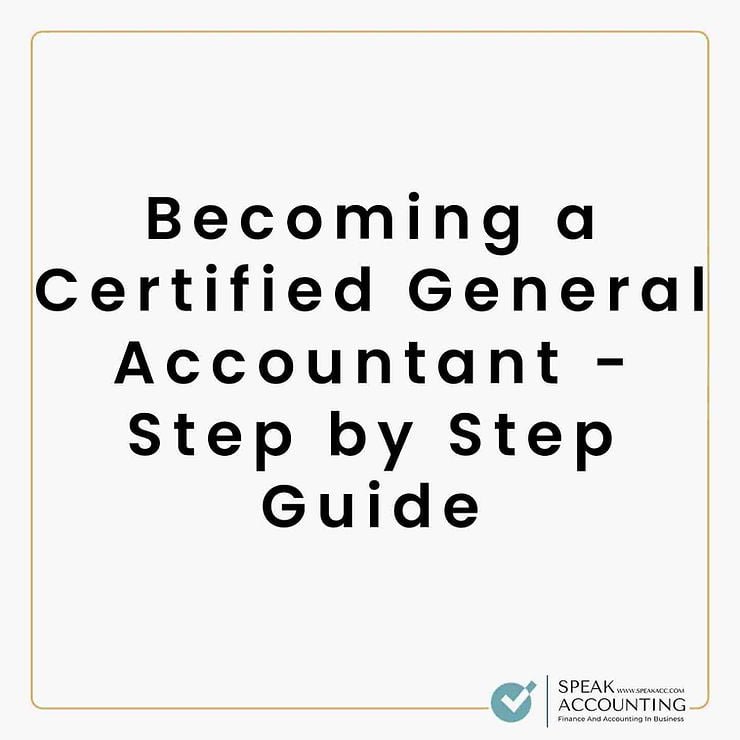
Introduction (Becoming a Certified General Accountant)
Becoming a Certified General Accountant (CGA) is a career path that holds the promise of financial stability, job security, and the opportunity to make a significant impact in the world of finance and accounting. The journey to obtaining this esteemed certification is not only intellectually rewarding but also opens doors to diverse job prospects and financial growth. In this comprehensive guide, we’ll navigate through the essential steps, educational requirements, certification process, and the crucial skill sets needed to pave your way to CGA success.
Educational Requirements
To embark on your journey to becoming a Certified General Accountant, you’ll need to meet specific educational prerequisites. These prerequisites serve as the foundation for your accounting knowledge and skillset.
1. Bachelor’s Degree
The first step is securing a bachelor’s degree in accounting or a related field. This degree is typically a prerequisite for CGA certification. It equips you with a fundamental understanding of accounting principles, financial management, and taxation.
2. Specific Courses
While a bachelor’s degree is a must, certain courses can further enhance your eligibility. Look for programs that offer coursework in advanced accounting, auditing, financial analysis, and taxation. These courses will not only prepare you for the CGA exams but also deepen your understanding of complex financial concepts.
3. Continuing Education
The world of accounting is constantly evolving. Consider enrolling in continuing education programs or workshops to stay updated with the latest accounting regulations and practices. These additional courses can set you apart from other candidates and demonstrate your commitment to professional development.
Certification Process
The path to CGA certification may seem daunting, but breaking it down into manageable steps can make the journey more accessible and less overwhelming.
1. Exam Preparation
CGA certification requires passing a series of rigorous exams. To excel in these exams, it’s crucial to invest time in thorough exam preparation. Consider enrolling in preparatory courses or using study materials specifically designed for CGA candidates. These resources can help you understand the exam format, study effectively, and build your confidence.
2. Application Procedures
To become a CGA, you must complete an application process. This typically involves submitting your educational transcripts, relevant documentation, and payment of application fees. Ensure that you meet all the eligibility criteria before applying to avoid any delays in the certification process.
3. Examination
The CGA certification process includes multiple exams, each focusing on different areas of accounting and finance. These exams assess your knowledge and skills in various domains such as financial accounting, management accounting, taxation, and auditing. Be prepared to dedicate ample time to study for each exam and approach them with a clear strategy.
4. Experience Requirements
In addition to passing exams, you’ll likely need to fulfill practical experience requirements. This often involves working under the guidance of a certified accountant or in a related financial role. Gaining hands-on experience not only helps you apply theoretical knowledge but also demonstrates your competency to potential employers.
Skillsets Needed
Becoming a successful CGA requires more than just passing exams and meeting educational criteria. You must also possess a specific set of skills and attributes to thrive in the accounting profession.
1. Analytical Skills
Accountants must have a keen eye for detail and the ability to analyze complex financial data. Developing strong analytical skills will enable you to identify trends, spot discrepancies, and provide valuable insights to clients or employers.
2. Communication Skills
Effective communication is paramount in accounting. You’ll need to convey financial information clearly and concisely to clients, colleagues, and stakeholders. Improving your written and verbal communication skills will set you apart in this field.
3. Ethical Integrity
Trust is the foundation of the accounting profession. Upholding high ethical standards and integrity is non-negotiable. Ensure that your actions and decisions align with ethical guidelines to maintain your reputation and trustworthiness.
4. Adaptability
The accounting landscape is constantly evolving due to changes in regulations and technology. Being adaptable and open to learning new software and techniques is essential for long-term success as a CGA.
5. Time Management
In the world of accounting, deadlines are a constant. Effective time management skills are crucial for meeting reporting deadlines and managing multiple clients or projects simultaneously.
Conclusion
In conclusion, the path to becoming a Certified General Accountant may be challenging, but the rewards are well worth the effort. By fulfilling the educational requirements, navigating the certification process diligently, and honing the essential skillsets, you can embark on a fulfilling career in accounting that offers financial stability and professional growth. Remember, the journey may be demanding, but the destination promises a world of opportunities in the field of finance and accounting.
Share this content:
